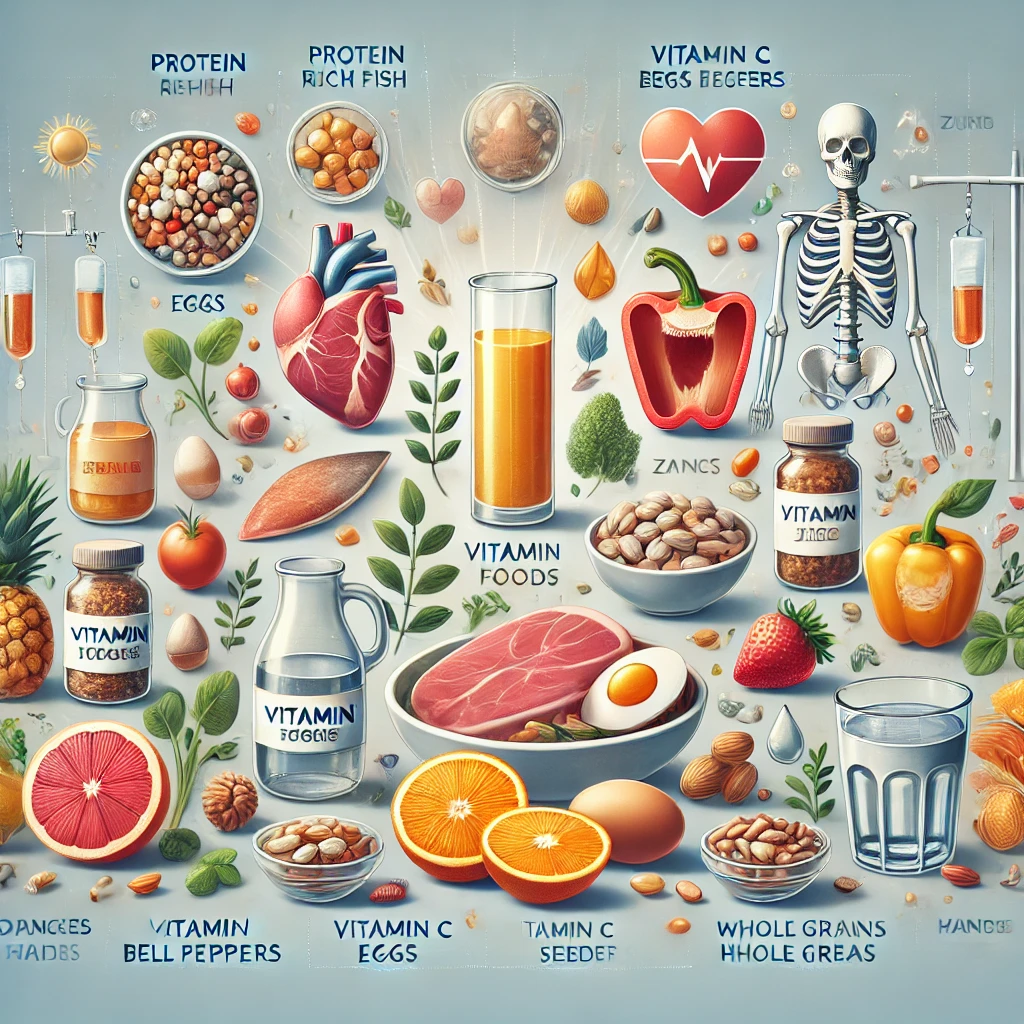Summary
- Optimizing post surgery healing or recovery is not limited to nutrition, hydration, movement, and pain management; it includes the entire mental and physical wellbeing spectrum!
- Complications prevention: Postoperative home care, wound care, infective prevention, and awareness of warning signs can significantly reduce complications and enhance recovery.
- Harnessing the Power of Lifestyle: Better sleep, emotional comfort, and guided movement throughout recovery promote more rapid recovery and return to wellbeing.
A surgical procedure transforms life, whether on a small or large scale. Healing after surgery requires the same importance as the procedure itself. An adequately designed recovery plan affects both the rate and final outcomes of healing. The article presents research-backed methods for helping patients recover their health after surgical interventions.
The Science of Post Surgery Healing: Why Recovery Matters?
The surgical healing process consists of three essential phases the body successfully goes through.
- The body launches inflammation during this initial phase to defend against infection and activate tissue healing processes.
- From day 5 through day 21, new tissue develops, ps as the wound becomes sealed.
- The body uses collagen to strengthen tissues during the remodeling phase, which leads to scar maturation within 21 days to several months.
Postoperative patient care under the guidance of the National Institute of Health (NIH) shows that it cuts recovery duration in half while decreasing various medical issues involving infections, scarring, and prolonged discomfort (NIH 2022).
1. Nutrition: Fueling the Body for Healing
Nutrition watches help patients who are recovering from surgical procedures maintain a balanced diet. Nutrition is vital for the body because it aids wound healing, tissue repair, immunity, etc. As indicated in Clinical Nutrition, adequate protein intake accelerates the healing of wounds by 30% compared to those who do not receive enough protein (Clinical Nutrition, 2021).
Essential Nutrients for Recovery

- The healing process of cells and wounds receives support from protein intake (Sources: lean meat, fish, eggs, legumes).
- The combination of Vitamin C and E supports collagen synthesis while fighting oxidative stress. (These nutrients are found in citrus fruits, nuts, and seeds.)
- Zinc: Accelerates tissue repair (Sources: shellfish, whole grains).
- Individuals who consume salmon, flaxseeds, or walnuts receive two benefits: inflammation reduction and cell regeneration stimulation (Sources: salmon, flaxseeds, walnuts).
Pro Tip:
Medical research demonstrates that postoperative healing processes benefit more from whole food nutrients compared to supplements since whole foods provide enhanced combined effects on healing mechanisms. — Dr. James Harrison, Nutritionist — Dr. James Harrison, Nutritionist
2. Hydration: The Unsung Hero of Healing
The human body needs water for toxin elimination and blood circulation maintenance while requiring it to keep skin elastic. Wounds heal more slowly when patients are dehydrated, and this dehydration condition raises their chance of developing surgical complications. According to the American Journal of Medicine recommendations (AJM, 2020), postoperative care requires patients to consume 2-3 liters of water daily.
Herbal teas with coconut water and broth-based soups provide better alternatives to plain water for those who dislike its taste.
3. Movement & Physical Therapy: The Right Balance
Complete rest is essential, but too much rest without movement produces problems, including blood clot formation and muscle weakness. According to the American Physical Therapy Association, resting with light physical activities during the first twenty-four hours post-operation enables patients to recover more quickly by a percentage of twenty-five (APTA, 2021).
Safe Movements Based on Surgery Type
Orthopaedic patients must follow gentle stretching exercises in combination with physical therapy sessions and should done under medical supervision. After abdominal surgeries, for example, deep breathing exercises and light walking are encouraged. Cardiac surgery patients are supposed to do therapeutic postural support slow movements.
The essence of healing is that we really want to have those safe movements to open up circulation and reduce muscle tightness rather than completely immobilizing the movement. — Dr. Karen Ellis, physical therapist
Finding the Balance
Pain management is important because it helps the patient feel better and rehabilitate faster. Patients must have their prescribed pain drugs, but adopting natural pain relief methods boosts their health and reduces pharmaceutical reliance.
Natural Pain Relief Strategies
- Cold & Heat Therapy: Reduces inflammation and muscle stiffness.
- Massages with acupuncture methods have been shown to reduce post-surgical pain by 35% (National Center for Complementary and Integrative Health 2022).
- The practice of mindfulness meditation creates pain reduction for stress-related conditions and helps patients achieve relaxation.
5. Sleep: The Ultimate Repair Mechanism
The body accomplishes the majority of its healing processes during sleep periods. The Sleep Foundation has reported that individuals who obtain seven to nine hours of night time sleep recover their health forty percent quicker than those whose sleep cycles are interrupted (Sleep Foundation, 2021).
Tips for Quality Sleep Post-Surgery
- The environment should be kept cool with minimal light exposure.
- The consumption of caffeine along with electronic screen use should be avoided before going to bed.
- Support pillows should be used to minimize pain while supporting proper spine positioning.
6. Emotional Wellbeing & Mental Health

The medical procedure affects both body health and psychological state. Postoperative depression and anxiety affect thirty to fifty percent of patients, according to Mayo Clinic (2022).
Strategies to Promote Mental Health
- Journaling alongside expressive writing creates a tool to deal with emotions.
- People can seek emotional help by discussing their experiences with their social networks and joining support group activities.
- Meditative breathing practices with guided instructions help decrease high stress hormone production, slowing healing.
“Healing isn’t just physical. The combination of a strong mental state leads to better recovery progress and fewer complications. Dr. Emily Rhodes, Clinical Psychologist
7. The Role of Supplements: Are They Necessary?
All foods are preferred, but supplements fill nutritional gaps for patients who need special diets.
Recommended Supplements Post-Surgery
- Collagen Peptides: Enhance skin and tissue repair.
- The enzymatic substance Bromelain, which exists in Pineapples, helps decrease swelling and control inflammation.
- Probiotics benefit gastrointestinal health when patients take antibiotics or any medication that disrupts gut bacteria.
- Magnesium: Helps with muscle relaxation and sleep quality.
8. Preventing Post-Surgical Complications
Patients must address surgical complications, including infections, excessive scarring, and blood clots post-operatively. According to data from the Centers for Disease Control and Prevention (CDC, 2022), healthcare-associated infections affect one hospital patient out of thirty.
Key Prevention Strategies
- The patient must follow procedures for hygiene and receive training in wound care.
- You should learn to identify the first warning symptoms of an infection, including redness, swelling, and fever.
- Daily movement helps to stop blood clots and deep vein thrombosis (DVT) from developing.
- Report atypical symptoms to your healthcare provider when you want to seek care.
9. When Going Home Is the Hardest Part: The Role of Post-Surgery Home Care
Postoperative home care is essential to ensure a smooth recovery after your surgery. A structured plan that includes medication management, wound care, and lifestyle adjustments can prevent complications. Patients must help create an environment at home that encourages rest and care, with immediate access to essentials and minimal physical effort.

 Medically reviewed by
Medically reviewed by